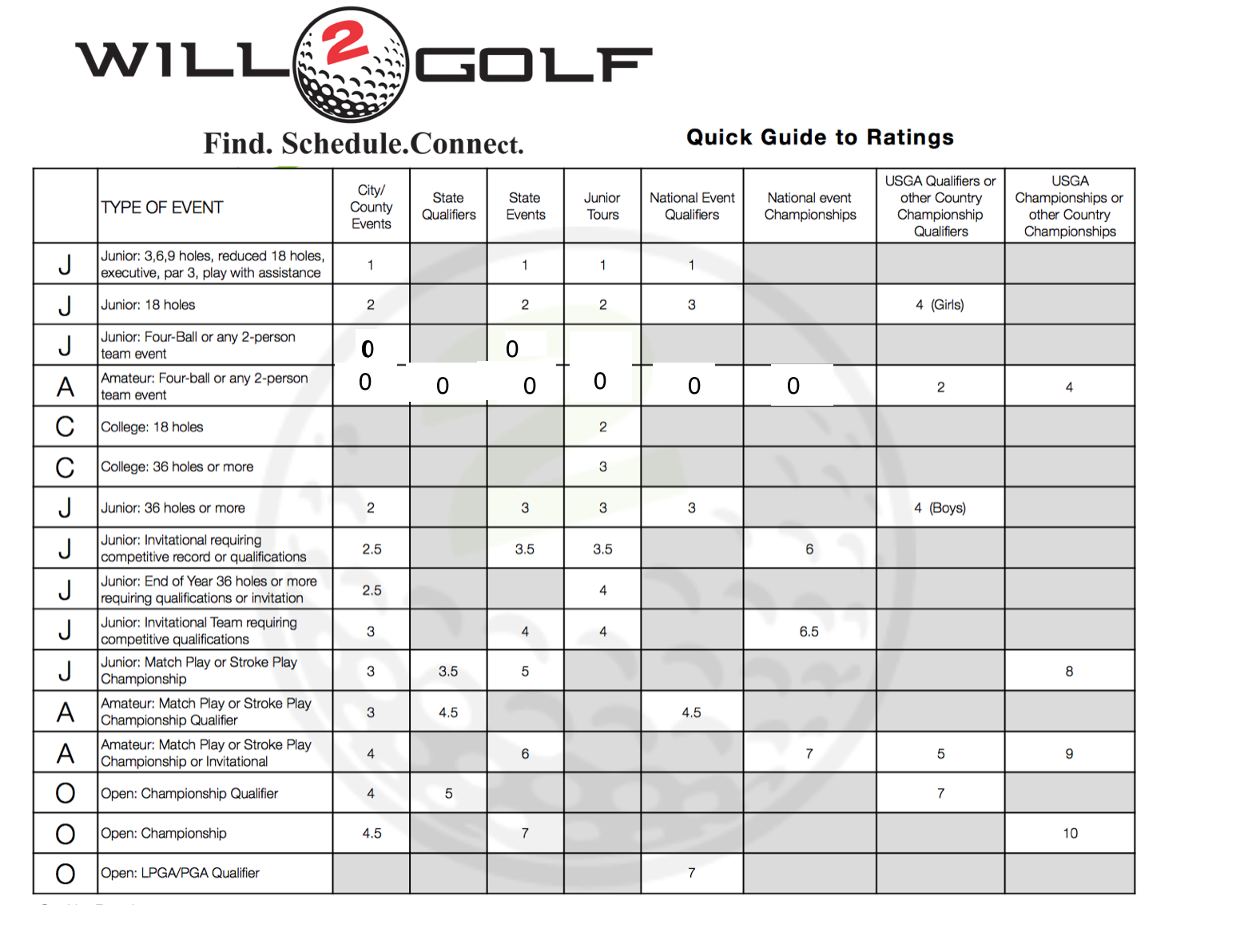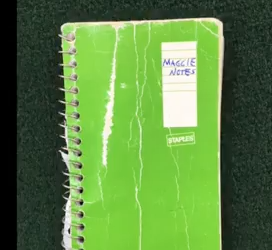Month: June 2017
Why did they get recruited and not me?

I get this question at least once a week if not more. “My child can beat or did beat that other junior several times last year. How did they get recruited to that team?”
The Answer: Every situation is different. You never know who might have known someone. It is possible that that junior wrote and called and kept showing up at events where the coach was located. Maybe the coach had a roster change. Maybe the other junior has great grades. Maybe that junior visited many years before and stayed in touch. Or better yet, why guess… Go politely ask the parents. Maybe they will share their experience and you can get some ideas or helpful hints. Remember, there are never any guarantees. Things are very fluid with the rosters.
I’ve shared a few of my experiences from college coaches below.
When I was coaching, I asked many coaches how the above scenario happened with them. Here are a couple responses:
Coach A responded: “I saw Junior A randomly when I was out recruiting another junior and they just caught my eye. I happened upon Junior A again and again. The family visited several times so that we could develop a relationship. After getting to know Junior A, I decided to take a chance. I just had a good feeling and Junior A surpassed my expectations, worked harder than I imagined, made our line-up during the spring term, made the honor roll and the rest is history.”
Unfortunately, I heard this as well from Coach B: “I needed another player to fill my roster and got a call from a friend who thought Junior B would develop. Junior B had a high academic profile. We talked about what was possible on the phone. I thought we were both on the same page. Junior B struggled athletically, academically and became a disruption for the team. I will be more careful next time, but for now I am going to trim my roster.”
As you just read, there is a little bit of luck involved in becoming Junior A with Coach A. Nothing wrong with being lucky in the right place at the right time. You can increase your odds of being in the right place at the right time by getting in front of the college coach more. (If you do not see their recruiting schedule, ask me to ask them for it.) Let the coach know you will be at the same event and ask them to watch you for a few holes.
Make more options for yourself and prepare to be surprised. Please make sure you are being seen by coaches of teams at your level or even at a level where you will shine. Keep as many options open as possible by playing in front of and visiting schools of all levels.
Should I go to a Camp at a College Campus?

I hope you were able to catch some of the NCAA Women’s and NCAA Men’s Golf Championships the past couple of weeks on The Golf Channel. The Arizona State Sun Devils won the individual and team title on the women’s side while The Oklahoma Sooners took the men’s team title. Congrats to Braden Thornberry of Ole Miss for the individual title as well as all of the teams and individual winners at the various different national championships. I was asked last week if I would trade one of my LPGA wins for a national championship. Absolutely Yes! (We lost by 1 shot my senior year!) Playing on a college team at any level is an experience you will always remember.
With championship season over, college coaches will turn their focus to recruiting and camp season. Which brings us to the question: Should you go to a college camp and what should you expect?
….That is the question
2. I’m new to the game and need to learn the basics and play some golf.
3. I’m in middle school nearing high school and want to start learning a bit about college and playing college golf.
4. This college is one of my top 5-10 choices. I want to meet the coach and see the school.
5. One of my top 5-10 schools of choice has a coach at this camp.
6. I realize now that I am not getting one of my top 5-10 schools of choice and need to get seen by some coaches at a different level.
7. I’d like to learn how to play at a higher level and learning from a college coach might give me some insights.There are many other reasons to attend. Know your goal. Log in to see some of the camps that we know about and what to expect at camp.
Recruiting is a Two-Way Street
Keep a Notebook
When should we start visiting colleges?

Gary, from Illinois asks:
When should we start visiting colleges?
Start anytime. I would recommend driving through a campus or two when your teen is approaching 9th grade. Or, plan to stop for lunch and walk around. Many college cafeterias allow guests to pay and dine. Between 9th and 10th grade, check with college admissions, take a tour, observe a class in session, and explore a dormitory. It is acceptable to ask the coach for 10-20 minutes with advance notice during your freshman and sophomore year (provided it is allowed by the recruiting rules). Do not be disappointed if the coach is unavailable. You will appreciate the coach’s schedule when your child is on a roster.
Please be respectful of time when you ask. The coach will have paperwork to do if you speak and have an unofficial visit.
It may be helpful to visit a campus with just 2-3k students and compare to larger schools of 15-20k students. Observe classes in both environments.
Consider the practicality of playing golf in different climates. Perhaps limit your school visits to either southern or southwestern schools if you want to play outdoors year-round. If this is not a concern, expand your choices to include Ivy League schools, (strong academics), or northern division III schools which may include more time away from golf during the academic year. However, some northern programs have impressive facilities for indoor putting and practicing during inclement winter weather.
Also think about visiting schools of different division levels. Wonderful programs exist in all divisions. Always ask yourself, “Will I be happy here if something unforeseen happens and I am unable to play golf?”
How often should I watch my son or daughter play?

ob B., from Minnesota asks:
How often should I watch my son or daughter play?
I don’t think there is a right or wrong answer to that question. If your son or daughter requests your presence at an event, and you enjoy watching, then go for it. Validate your junior’s level of independence by asking what they prefer. A junior golfer may ask for your support (by being in the gallery for one event) and then ask you to stay home for the next event (supportive from afar). Encourage your son or daughter to decide what is best for him or her. Discuss with your junior about their comfort level with playing events in your absence, and decide together when the appropriate time may be to set them free to play. This may occur after a couple of years of tournament play, and also depend on age. They will figure out how to take care of themselves. Print Reminders and Packing List for Tournament Rounds and share with your junior in advance. College coaches like to see independent student-athletes.
What rating level should I play?

Janie H, from Indiana ask:
What rating level should I play?
Find Your Level is a very helpful place to begin with your junior golfer.
Also, the W2G Ratings Guide was developed to track the progression of competitive play from junior (J) to amateur (A), and to open (O) events. Junior players new to competitive golf may begin with parent-junior events (level S). Next, add some 9 hole competitive events (J, level 1). Advance to 18 holes (J, 2) as comfort level increases with playing 18 holes in practice, playing with friends, and carrying one’s own bag.
Levels progress to 36 hole events, invitationals, and then to national junior events. While playing at junior level 3.5 – 4, add more challenge by playing in a local amateur event, (category A, level 3-4).
Confirm minimum age requirement for each amateur event by contacting the event’s association. Some amateur events may include or exclude junior golfers.
Strive to play and win at each level before advancing. However, also play in 1 or 2 events at the next level to stretch yourself. Playing in a few tournaments at a higher level may elicit nervousness and uncomfortable feelings with being out of your element. This response is great! Don’t get discouraged. Play your game. This is learning “on the job”!
Remember – playing at an uncomfortably higher level is a test to see if your confidence and game are ready for the next level. Perhaps after getting your feelings hurt by performing poorly, or feeling completely exhausted from playing well at a stretch event, resuming play at your current level may feel easy. I always found this to be true after playing in a U.S. Open. Playing in the Open stretched every ounce of me and wore me out emotionally, physically and mentally. However, the next few weeks on Tour felt “easy peasy”.
I am not eligible for the event where my “dream school” coach is recruiting.

Cayla S. from Florida asks:
I am not eligible for the event where my “dream school” coach is recruiting.
What can I do?
I must tell you that I am a “can’t make who made it.” Never give up kind of person. However, the harsh reality may be that your dream school coach is recruiting at a level that is out of your reach at the moment. (While college coaches look for potential, many want to see numbers on the board to go with your potential.) The reality is that no one knows if you will ever reach that level or possibly climb higher than that level. My advice is to continue to sharpen and develop your game. Keep improving. You cannot have a sharp enough short game. You have heard it a million times already, but short game, short game, short game!! Get your ball in the hole in fewer strokes. If you want to impress a college coach, hit 9 greens or less and put an under par score on the board. They know that is what you will need to do at the collegiate level. It is hard to handle studies, friends, sport and family in your freshman year. As a backup plan, look for coaches that recruit at events with levels similar to the ones in which you are playing, and find a school with a program that is within your reach. You want to have options. My last bit of advice is to say that if you really, really want a particular program and you are not at their level, but it is all or nothing for you to play at that school, then you need to find something else to “offer” the coach until your game arrives. There are some programs out there that will take a chance on great grades, solid sportsmanship and a dedicated person. Tell them you will be the best in the weight room, you will take care of the SAAC for the team, you will fill the volunteer hours, you will help increase the team GPA and you will be the best teammate ever if they give you a chance. Let me impress that this is no time for cheap talk. You are responsible for everything you say. You will need to live your words and back them up with action. If you are not willing to do that for 4 years, then do not offer it. You, your teammates and the coach want to have a good experience.
Why aren’t college coaches watching my child play and talking to them?

Nancy H. from North Carolina asks:
Why aren’t college coaches watching my child play and talking to them?
College coaches may not be watching you play for several reasons:
First, coaches may not know where your child is playing. Sometimes a coach may receive an email from a prospective student-athlete while at practice and file it away for future reference and simply forget to look at it again. They may want to follow, but managing a current roster is a busy task.
One coach told me recently that a top recruit had changed their schedule several times via email and he found it difficult to keep up with this recruit’s schedule. The coach missed watching the recruit play, even though the coach was nearby. Don’t let this happen to you. Will2Golf has made it easy for college coaches and student-athletes to have a shared virtual office for keeping track of profiles and calendaring of events . Make it easy for a coach to see you play by calendaring your events on Will2Golf. In one simple email, let a coach know they can find you on Will2Golf!
Second, are you old enough for coaches to contact you under NCAA rules?
Under NCAA rules, a student-athlete may be contacted by a Division I college coach September 1 of their junior year. The rules are a bit different for Division II and Division III.
Third, a coach may not recognize you. Make it easy for college coaches to identify you each day of a tournament by updating your profile photo.
May YOUR Dreams Come True

…and what you can’t
2. Having a back-up plan or two
3. Critical Thinking
4. Self-motivation and Self-disciplined
5. What you say or do
2. The coach’s decision to recruit or not recruit you
3. The questions on a test
4. Poor coaching
5. What others say or do



